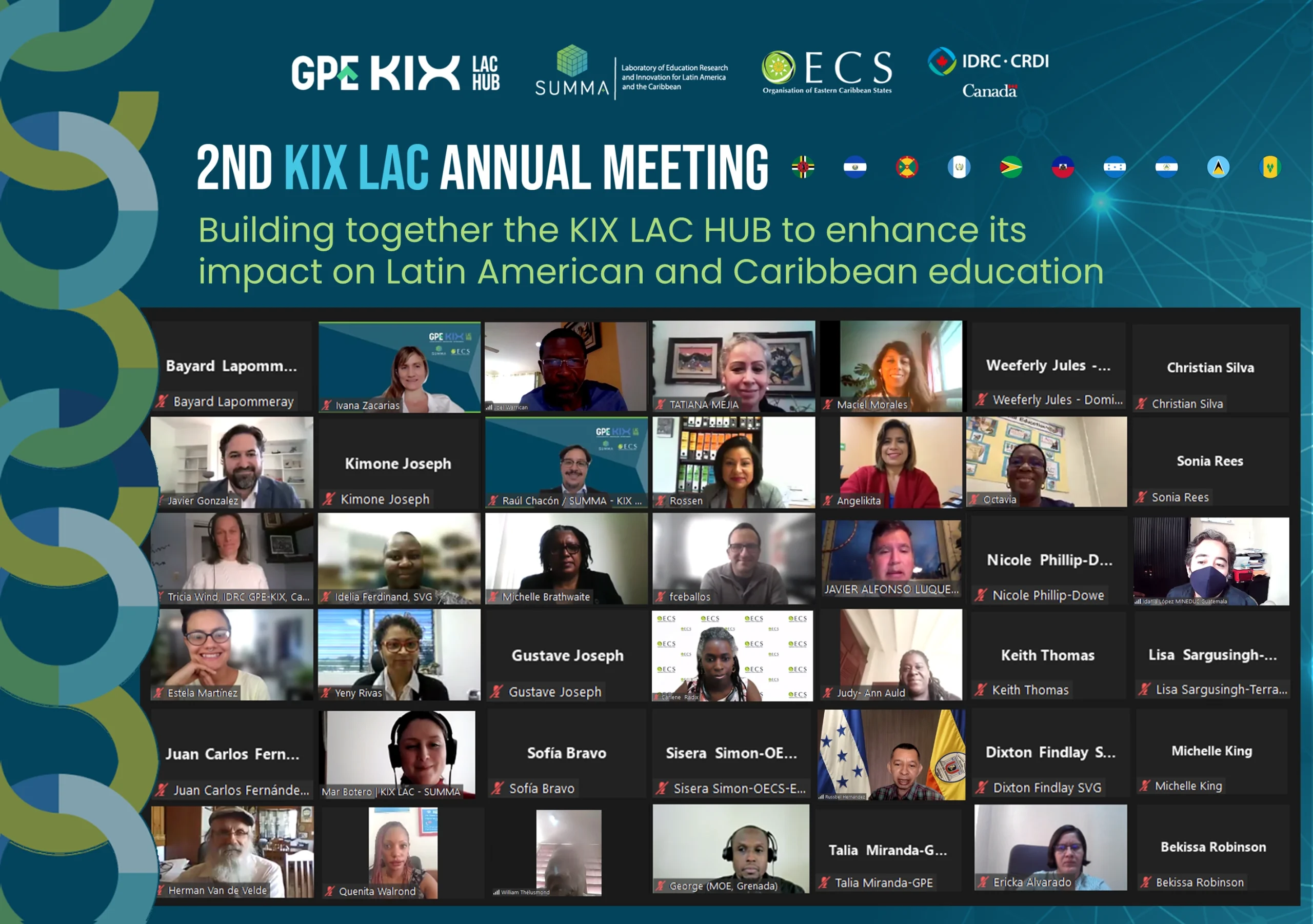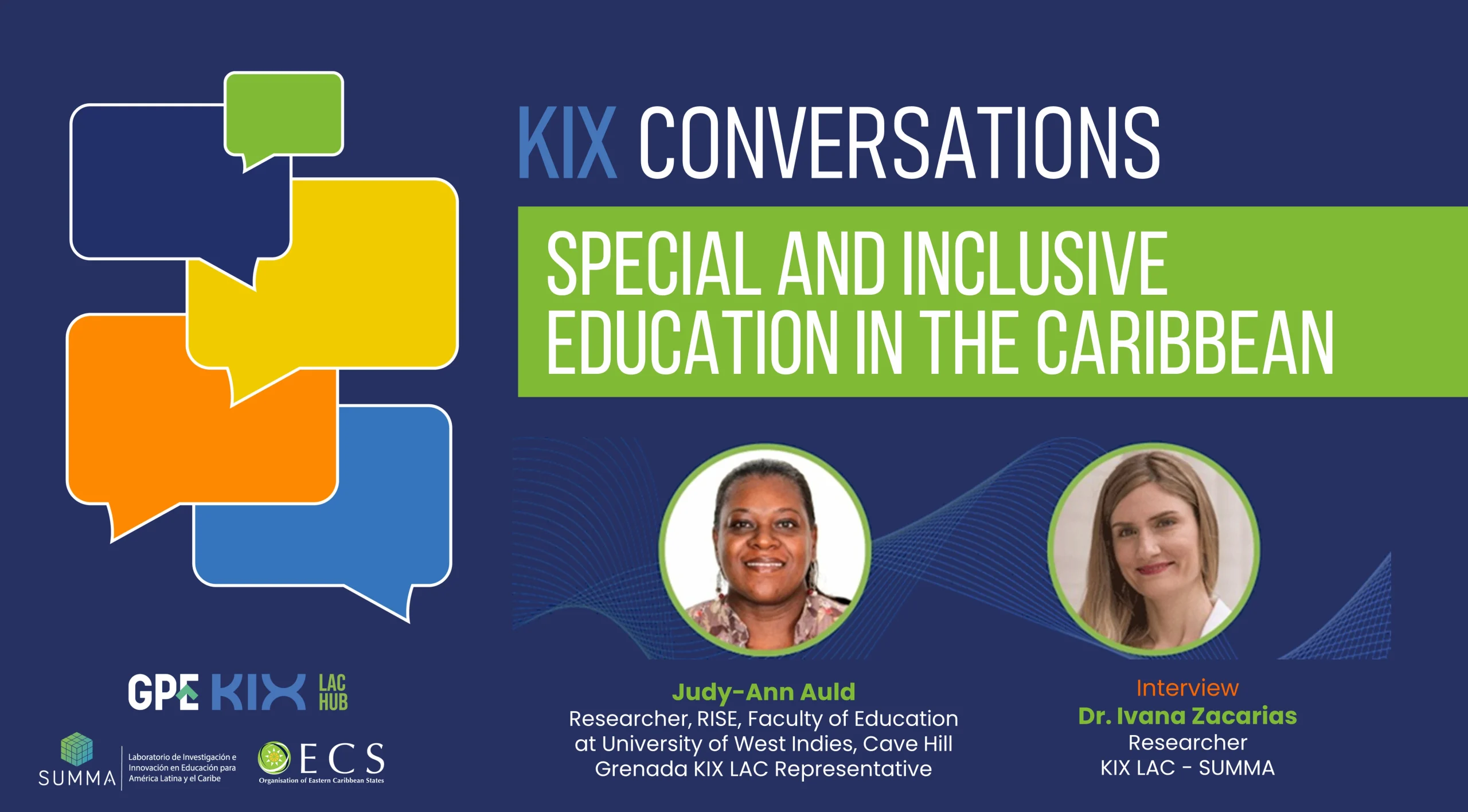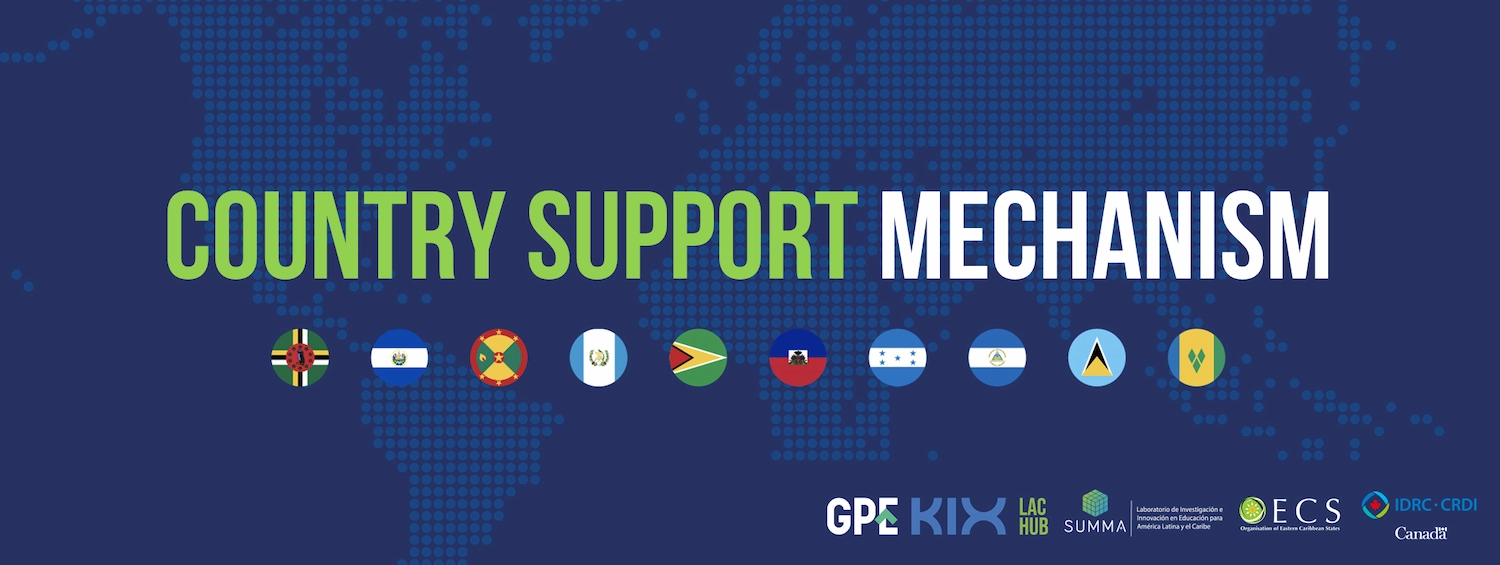KIX LAC organized a new workshop where UNICEF presented the Accelerator Toolkit, a key tool for including early childhood in educational planning
6 de May de 2025

Share
As part of the Knowledge Mobilization Cycle: Use of Evidence for the Early Childhood Education and Care, the Knowledge and Innovation Exchange Hub (KIX) in Latin America and the Caribbean (LAC) is an initiative promoted by the Global Partnership for Education (GPE), the International Development Research Centre (IDRC) of Canada, and led in Latin America and the Caribbean by SUMMA and the Organization of Eastern Caribbean States (OECS).- held a new workshop on April 25, focused on strengthening early childhood education through planning strategies. The meeting was attended by representatives from ministries of education, universities, international and national organizations, civil society, and schools. Participants from Honduras, Guatemala, Guyana, Grenada, Saint Vincent, and Saint Lucia also attended.
The main objective of the meeting was to provide an overview of the ECE Accelerator Toolkit, an innovative tool developed by UNICEF that seeks to integrate early childhood education into education sector planning processes systematically.
Raúl Chacón, Director of the KIX LAC Hub, welcomed the participants to the meeting and invited them to delve deeper into the challenges facing early childhood in the region. He stressed the need to continue consolidating a community of practice and to make progress on urgent issues such as equitable access, adequate funding, teacher training and intersectoral work. Finally, he underscored the strategic importance of investing in early childhood development as a key element in ensuring more equitable and sustainable education systems.
Then, Divya Lata, Global Thematic Lead on Early Childhood Education, UNICEF, presented the EC Accelerator Toolkit, noting that the tool allows Early Childhood Education to be systematically integrated into planning processes, based on technical analysis, coordination among key actors and projections of expansion and costs, prioritizing the most vulnerable and relying on evidence-based planning. Based on five strategic drivers –planning and budgeting, curriculum and learning framework, staff development, family and community engagement, and quality assurance – the toolkit offers countries practical methodologies to identify gaps, prioritize actions and move toward progressive universal coverage.
Subsequently, Sandipan Paul, Early Childhood Education Specialist in UNICEF Pacific, shared the experience of implementing the EC Accelerator Toolkit conceptual framework in 15 countries in the region. He explained that this framework was perceived as a strengthened update of previous efforts and that, together with the sub-sector analysis tool, it has been key to developing policies, sector plans and specific strategies. He stressed the importance of adapting the diagnostic process to the educational planning cycles of each country, prioritizing pillars such as planning, curriculum, personnel development, community participation and quality. Finally, Paul reflected that success depends on a participatory and contextualized approach, combining national leadership, broad consultation and flexibility in the use of tools to ensure cultural and political ownership.
The last presentation was given by David Woods Baysah, from the UNICEF Regional Office for Eastern and Southern Africa, who presented the experience of 11 countries in East, Southern and West Africa in using the EC Accelerator Toolkit. He explained that its implementation is based on a structured approach, led by governments and with broad participation of sector stakeholders. He noted that the toolkit has been key to generating evidence, mobilizing funding and designing policies in pre-primary education.
“With evidence, you can advocate for additional resources for early childhood education. With evidence, you can mobilize partners around a specific agenda that could accelerate early childhood education for your country and for your region.” – David Woods Baysah (UNICEF).
After the presentations, participants were organized into discussion groups to share experiences, raise doubts and collectively reflect on the use of the Accelerator Toolkit in their national contexts. These spaces were led by Agustín de la Varga González, Education Manager, and Patricia Misiego, Early Childhood Officer, both from the UNICEF Regional Office for Latin America and the Caribbean, together with Lisa Sargusingh-Terrance, Senior Technical Specialist of the OECS Commission.
From Central America, relevant advances were presented in Guatemala, Honduras and El Salvador, highlighting curricular updating processes, strategic planning and the need to improve institutional articulation. A common point was the importance of sensitizing authorities and strengthening technical capacities for the effective use of planning tools.
The Eastern Caribbean group expressed a strong interest in using the toolkit to promote a more systemic analysis of the sector. Representatives from Guyana and Grenada shared experiences in integrating early childhood into sector plans and emphasized the need to strengthen teacher training, supervision systems and curriculum updating, prioritizing equity and educational quality.
In both Central America and the Caribbean, the toolkit was positively valued as a strategic resource to guide diagnostic processes, priority setting and progressive planning in initial education.
“It is the type of tool that provides an opportunity to bring things together, because we know that sometimes we work in silos in a very fragmented way. The tool offers a way to approach the sector, analyze it, and develop a plan in a very systematic manner. Our countries are very encouraged that there is such a resource that can allow them to do so in a very coordinated way.” – Lisa Sargusingh-Terrance, (OECS Commission).
The meeting concluded with the recognition of the UNICEF team for its technical support, and with the commitment of the KIX LAC Hub to continue promoting opportunities for training, exchange and support to the countries of the region.
📍To participate you can update or add your data by completing this form.





















































































































